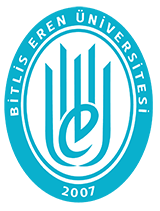Fuzzy Logic Based Power Factor Correction in Single Phase AC-DC System
Abstract
In recent years, there has been a significant increase in the number of power electronics converters used in both industrial
and home appliances devices. The utilization of electronic ballasts and switching mode power supply in power
conservation introduced the trouble of power quality. The currents used by these devices are not sinusoidal and these
currents are known as non- linear. Boost type power factor correction (PFC) converters are becoming popular due to
their conformity in power system quality problems. Conventionally, power factor correction converters were controlled
using Proportional-Integral- Differential (PID) controller to reduce harmonic disturbances and enhance the power factor
(PF). Conversely, for non-linear system, their performances are not very acceptable. Because PFC circuit is not linear,
in this paper fuzzy logic (FL) controller used to adjust the gain PID controller to improve the performance is presented.
It is proposed that when there is fluctuation in the voltage input, the input current should be made by a FL controller.
This FL controller has a great effect by keeping the phase angle between current and voltage at a very small value,
bringing the PF factor closer to 1.0. This great effect has also been demonstrated in experimental studies. The proposed
FL based PFC controller converter is analyzed in MATLAB/Simulink environment under variable loads and different
voltages. The Performance results (total harmonic distortion, PF and efficiency) has been calculated for different input
voltage and different loads. From these results it can be seen that the PF value is always improved to a value greater than
0.985, efficiency is more than 85% and total harmonic distortion of current is around 4% to 12,5%. The performance
results of the FL based PFC is in acceptable ranges in terms of THD according to IEC 61000-3-2. For the THD values
the cubic polynomial regression analysis was performed in MATLAB/ Basic Toolbox. (Version R2020b).
Collections

DSpace@BEU by Bitlis Eren University Institutional Repository is licensed under a Creative Commons Attribution-NonCommercial-NoDerivs 4.0 Unported License..













